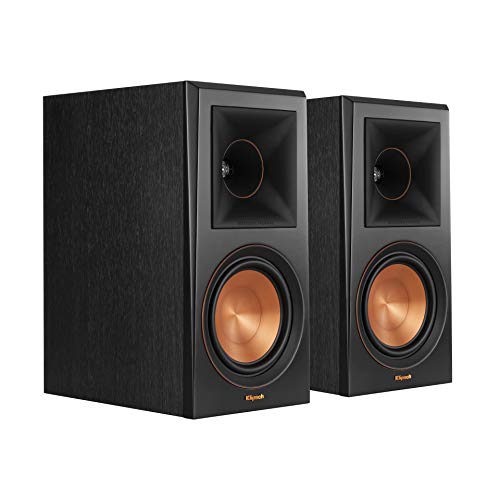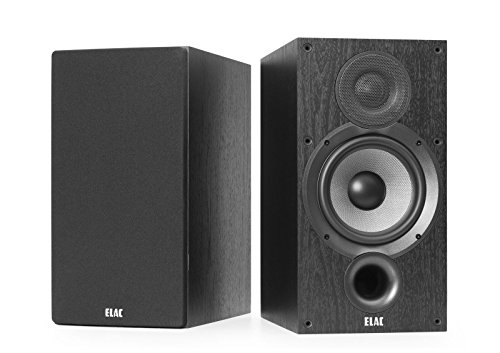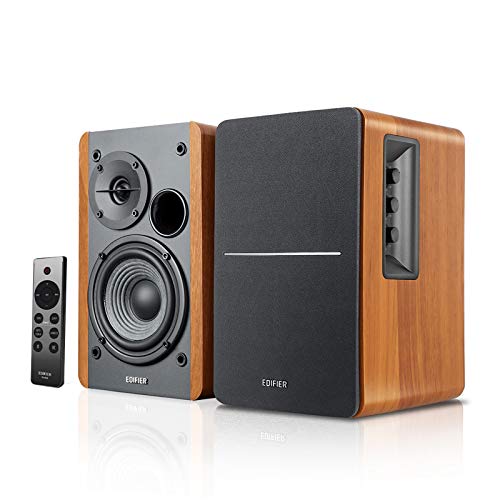Bookshelf speakers are in demand for their versatility. But do bookshelf speakers need stands to function properly? It’s a question we get repeatedly. We’ll walk you through the proper speaker placement for bookshelf speakers. We’ll also explain why it matters for better sound quality. For more info on bookshelf speakers, check out our full guide.
Table of Contents
Do I Need Stands For My Bookshelf Speakers?
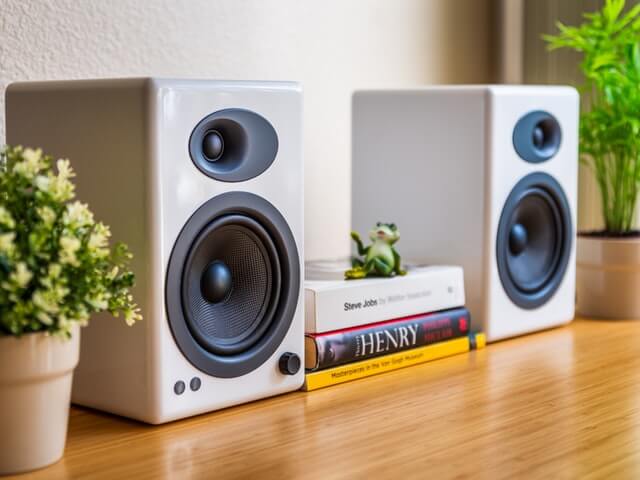
There are a few good rules to follow for proper speaker placement. For bookshelf speakers, having the tweeters at the listener’s ear level is important. Does that mean speaker stands are a requirement? No. Bookshelf speakers don’t need stands. However, speaker stands are ideal for proper speaker placement. Why are proper speaker stands the best choice? Unlike the floor-standing speakers, they definitely can’t be placed on the floors. Other options for placing bookshelf speakers on a table, entertainment center, desk, or (of course) a bookshelf. While all these may work, there are many issues that can arise.
The couch or chair you sit in and the height of the table or shelf being used will dictate your listening position. That includes your ear level. If they align perfectly in your home theater system, that’s perfect. It doesn’t work out that way for most, which makes bookshelf speaker stands a convenient solution.
Speaker stands function as more than just a way to improve sound quality. There are also aesthetic and design-related reasons for bookshelf speaker stands. When you place the speakers on the proper speaker stands, they appear to be floating in the air. This creates a sleek and modern look that is much more aesthetically pleasing to some. Many speaker stands also have integrated cable management features. Cable management can be a hassle in any home theater system. A speaker stand with built-in cable management can have functional and aesthetic benefits.
Do Bookshelf Speakers Sound Better On Stands?
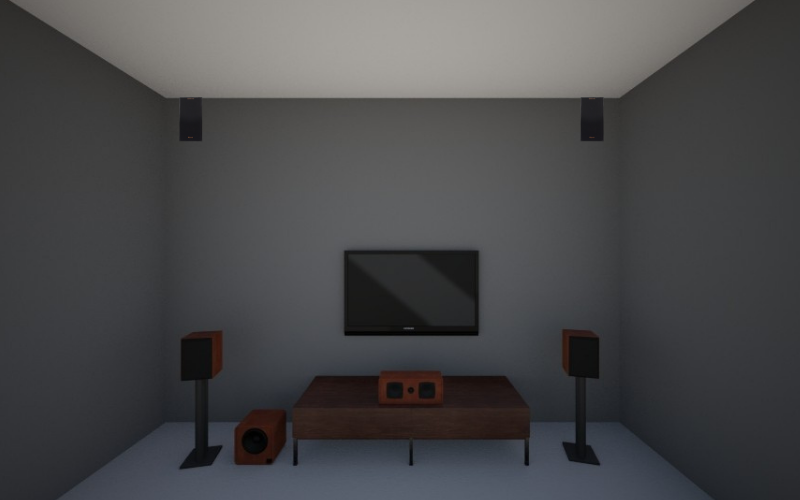
We already discussed the importance of tweeter height for bookshelf speakers. There are several other ways a speaker stand can result in better audio quality. Bookshelf speaker stands allow the speaker to be positioned in more places within a room. For a music setup or home theater system, it’s important to experiment and find the sweet spot. This could mean turning your speakers inward, setting them further apart, or moving them further from the wall. This is difficult if the speakers can’t move independently.
Bookshelf speaker stands also allow you to choose a spot that reduces sound reflection. That is crucial for the best audio quality. People underestimate the way room acoustics can impact and color the way speakers sound. Sound waves are constantly bouncing from your bookshelf speakers. Any obstacles between the speaker and the listener will reflect sound waves and negatively impact audio quality. Stereo speakers work best when they make an equilateral triangle with the listener for this reason. It allows a sound wave to a clear path from the speakers to your listening position.
Moving bookshelf speakers away from a wall can improve the audio quality and sound image too. Bass in particular can sound too boomy. This is due to the omnidirectional nature of woofers. Even if you add a subwoofer to handle bass, bookshelf speakers still handle some lower frequencies. If your bookshelf speakers are sitting on your TV stand, you’re likely limited in your option. A good speaker stand really allows you to find the proper speaker placement.
Does Filling Speaker Stands With Sand Help?
Another way people try to improve the sound quality of their bookshelf speakers is to fill the speaker stands with sand. Does it actually work? Yes. Filling speaker stands with sand increases the mass. The sand adds stability and acts as a damping material, which will help reduce any vibrations from the sound pressure speakers produce. Reducing any unwanted vibrations is ideal for an undistorted listening experience.
If you’ve seen speaker stands, they have a long and narrow column with a small base. This design means that the speaker stand is not very stable and is more likely to tip over even when a pet or child bumps into it. Sand can help weigh the stand down and make it more stable. The weight will shift the speaker’s center of gravity downward, making it less likely to tip over.
Other materials that can be used instead of sand include cat litter, pebbles, and even rice. Sand is the most common material used to fill speaker stands because it is readily available and relatively inexpensive. Something like pebbles can be a little less messy though. I personally prefer pebble in ziplock bags.
Do Bookshelf Speaker Stands Reduce Bass?
Not necessarily. When a speaker is placed too close to the ground or the wall, bass might become boomy and muddy. Bookshelf speaker stands allow you to adjust the placement and look for a better spot. Speaker stands should result in bass that is tighter, deeper, and more consistent.
If bass seems less pronounced, it may be that it was previously being overemphasized. Bass frequencies are omnidirectional and can be negatively impacted room acoustics. Having your speakers close bookshelf speakers close to the ground is never good. You can experiment with placing them a little closer to the wall if you want more bass.
In Conclusion: Stands and Proper Speaker Placement
Do you have to buy stands for your bookshelf speaker? No. If you want the best listening experience, it’s probably a good idea though. Focus initially on if your tweeters are at a proper listening level. There are even smaller stands for computer desks that will help achieve the ideal height. You should then consider if their current placement restricts your ability to find your listening sweet spot. All these small changes may not have a huge impact on sound quality. They are pretty good guidelines though. Bookshelf speaker stands will allow you to maximize the audio quality of your music and home theater. It’s a small price to pay in the long run.

Keith Collins has been writing for over 15 years for various publications. He’s a lover of music, home theater, and excellent sound quality. His fondness for technology in addition to his non-stop curiosity fuels his writing ventures.
